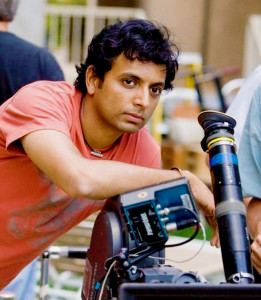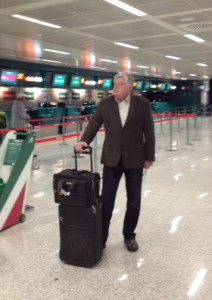The registration for the Simply Smarter System Beta is coming to a close in a few days and many of us are getting anxious to start using it. I know I have lost some horsepower over the last few years and am ready to get it back. As I hope we all know, specific input with sufficient frequency, intensity, and duration is what produces change. We have a great proven tool that builds all of the processing pieces: short-term memory, working memory, executive function, visualization, and conceptualization. This is done in a totally targeted, individualized program that provides each individual with the specific input and delivers it with the required frequency, intensity, and duration for anyone who is motivated to improve.
I have all of our staff signed up and am excited to see them push forward. I plan to see everyone get better at virtually everything, improving globally. Everyone may not have the time to devote to reach a 10 or 12 or higher, but as many of our families know, even an incremental change can make a measurable difference in function. We have families that can see their child change significantly as they move from a 3.0 to 3.1 to a 3.2, on their way to a 4. One of the things I love to see is children who take the summer off from their academic programs (not something I recommend), but who work on their processing; and unlike the other children who attend school and take a summer vacation and lose about three months academically over the summer, these children often gain three to six months, and at times over a year, in their reading and math skills- way cool!
I’m also very excited to see the changes in how well programs are being implemented and how well the parents of our kids are able to organize their lives, think through the issues, and improve the overall quality of their lives as they build their processing skills.
Once everyone gets started on the SS System, early next month I would love to see people start sharing stories about their progress. “I came up a full digit in my auditory progression in just weeks!” “I moved out of the red and yellow zones into all greens across the board.” You can share your advancement on NACD’s Facebook page without revealing where you actually are, or if you want to brag, tell the world where you have gone.
I would hope that our enlightened NACD families would perceive the value of the Simply Smarter System and my vision with our foundation’s Simply Smarter Project. We can all be smarter and we all need to get smarter fast. There is nothing on the news that makes me believe that the world is moving in any great directions. We need everyone to simply be smarter soon or I’m really worried about later.

 I’m a morning-news junkie. I get up and turn the news on in my bedroom, then go down to the kitchen to get coffee and turn on a different news channel and then go up to my bathroom to shower and get ready and turn on a third news channel. I feel I need to know what is going on in the world, I don’t need to know who shot whom at what bar last night or how the traffic is doing unless I have to drive to the airport so I skip local news and look for national and international news and stories that actually address important issues. Between a few different sources I hope to get at least an approximation of what is really going on.
I’m a morning-news junkie. I get up and turn the news on in my bedroom, then go down to the kitchen to get coffee and turn on a different news channel and then go up to my bathroom to shower and get ready and turn on a third news channel. I feel I need to know what is going on in the world, I don’t need to know who shot whom at what bar last night or how the traffic is doing unless I have to drive to the airport so I skip local news and look for national and international news and stories that actually address important issues. Between a few different sources I hope to get at least an approximation of what is really going on. Not really. I’m sitting in a very hot, very humid, very closed Charles de Gaulle airport. It has been one of those very wonderful travel days. (Up at 3 a.m. to get to the airport in Bucharest, get on a flight to Paris, sit on the very hot, very humid plane for three hours before they decide it’s broken and they can’t fix it, wait around until after 8 p.m. to catch another flight. My connection left many hours ago. Eventually I will get on a plane to Salt Lake City, which I think is about another 12 hours or something. Oh, the joys of international travel. And let’s not talk about the endless lines, or if there is not a narrow corridor, generally masses of people converging on a target location.
Not really. I’m sitting in a very hot, very humid, very closed Charles de Gaulle airport. It has been one of those very wonderful travel days. (Up at 3 a.m. to get to the airport in Bucharest, get on a flight to Paris, sit on the very hot, very humid plane for three hours before they decide it’s broken and they can’t fix it, wait around until after 8 p.m. to catch another flight. My connection left many hours ago. Eventually I will get on a plane to Salt Lake City, which I think is about another 12 hours or something. Oh, the joys of international travel. And let’s not talk about the endless lines, or if there is not a narrow corridor, generally masses of people converging on a target location.